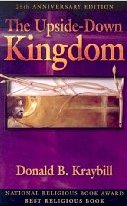You’re blessed when you’re content with just who you are—no more, no less. That’s the moment you find yourselves proud owners of everything that can’t be bought. — Matthew 5:5, The Message

How do you measure “greatness?” What kind of person causes you to remark, “That’s a great man or woman!” “Meekness” is underrated and much misunderstood today. But true meekness produces amazing greatness. Take Abraham Lincoln, possibly one of the most revered Presidents this nation has ever seen. We visit his memorial in Washington, D.C. We remember his greatness every time we step onto the battlefield at Gettysburg, PA. There on the afternoon of Thursday, November 19, 1863, in a little over three minutes and 272 words, Lincoln uttered probably one of the most memorable and greatest speeches ever heard. So, greatness is not based on how gifted a public speaker a person might be, or how intelligent he or she may be or how long he or she may be in front of crowds.
“Blessed are the meek,” Jesus said, indeed the most humble man that ever lived. His definition of greatness comes in sentences like this:
Come to me, all you who are weary and burdened, and I will give you rest. Take my yoke upon you and learn from me, for I am gentle ( = meek) and humble in heart, and you will find rest for your souls (Matthew 11:28-29).
It seems like a contradiction, doesn’t it? Can a King be gentle at the same time? Jesus was. Can Christ-followers argue forcefully for kingdom values yet in gentleness? Apparently, the Apostle Paul in 1 Timothy 6:11-12 thought so – “pursue . . . gentleness. Fight the good fight of the faith.” Those who oppose the Christian message are to won over with “gentleness and respect” (1 Peter 3:15). Christian believers are to exercise wisdom with gentleness (James 3:13) and “live gently” – “Clothe yourselves with compassion, kindness, humility, gentleness and patience” (Colossians 3:12).
A working definition of “meekness” would be “a true view of oneself expressing itself in attitude about myself and conduct toward others.” Meekness is not simply “niceness” or a biological knack of being easy-going. These kinds of people, Jesus says, will “inherit the earth.” That means they will experience what so many wealthy and powerful people don’t – a satisfaction or contentment with what God has given to enjoy, trusting him for everything you need or even want.
How does one practice such humility? We need to see gentleness and humility as “beautiful,” not a weakness or something for which to be embarrassed. Then we need to practice three character strengths that will make us meek:
- be approachable;
- be sensitive;
- and be teachable.
Foster a culture of humility around yourself and others, what Bill Hybels from WIllow Creek Community Church calls “impression management.” Watch the way you interact with others.

What do you communicate? Establish a culture at school and work that resists arrogance. Have an inner circle of friends that help you deal with your pride. Donald Kraybill has written in The Upside-Down Kingdom, “Kingdom people are not sectarians protesting the larger society just for the sake of being different. Kingdom values, rooted in the deep love and abiding grace of God, seed new ways of thinking and living.”
Note: For the Beautitude series follow this link.
A Christ-follower and mentor of leaders and churches whose life plan is to make an eternal difference in lives for Jesus Christ. Carl currently serves as the Executive Pastor of Cross Roads Brethren in Christ Church (Mount Joy, PA), President of Carl Shank Consulting, and as a Board Member of the Mount Joy Chamber of Commerce. B. S. in Mathematics from Dickinson College. M. Div. and Th. M. from Westminster Theological Seminary (Philadelphia Campus). Carl’s insights have been a great encouragement to Thomas B. Grosh IV, Associate Director, Emerging Scholars Network. To God be the glory!

Leave a Reply